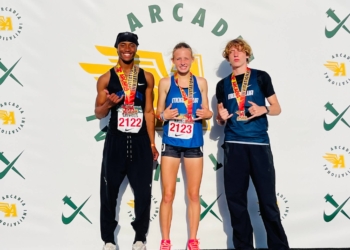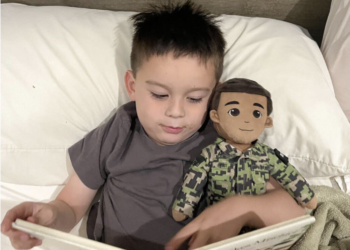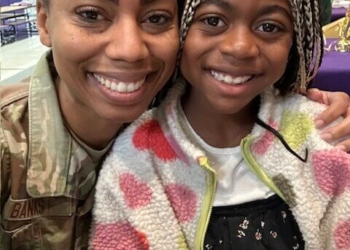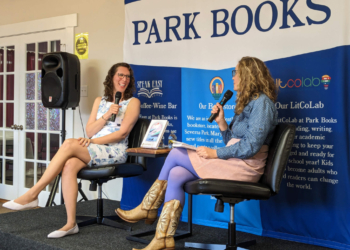The Boys & Girls Clubs of America (BGCA) named an Air Force teen as spokesperson to represent thousands of military-connected youth
According to a survey conducted by the USO, military children move upwards of 10 times by the age of 12, resulting in attendance at six to nine schools by graduation from high school. While this quick transition promotes resiliency and adaptation skills, it also presents challenges in the continuity of learning programs and education. Bethany C., the BGCA National Military Youth of the Year, attests to the difficulty of those changes personally and in terms of her education. But thanks to the STEM Centers of Innovation, provided by the BGCA and Raytheon Technologies, she found consistency she otherwise wouldn’t have had.
Boys & Girls Clubs of America National Military Youth of the Year
Every year, the BGCA holds a recognition program of its students through a National Youth of the Year celebration and the Military Youth of the Year is a part of it. Each BGCA-affiliated youth center chooses a student that best represents the characteristics of community service, academic success, good character, citizenship, and establishing long-term goals. Military Youth of the Year goes to a club member from a U.S. military installation who has overcome the odds while demonstrating continued exceptional character and accomplishments.
Bethany, who has been a member of the youth center on Kirtland Air Force Base since third grade, was chosen because she is “a very determined young lady and that is what carried her to being our National Military Youth of the Year,” Johnny DiBartolo, Director of Organizational Development at BGCA & Director of Special Projects, Military Services at Kirtland AFB, said.
Once receiving this recognition, Bethany then advanced to the state and regional levels of competition. The Regional Military Youth of the Year competes for the National Military Youth of the Year title.
“I am so proud to be Military Youth of the Year,” Bethany shared. “My whole goal was to continue to the process as a thank you to my mentors. The process introduces each other [to other students] who are like you and different.”
Bethany credits the resiliency she learned as a military child with preparing her for the next steps in life. In childhood, she was diagnosed with a hearing impairment that requires hearing aids, which she learned later prevented her from going into military service like her father.
Bethany also experienced the rapid turnover of her fellow military friends while living on a military base. Her father served in the National Guard for over 30 years in addition to working a civilian job on the base, which allowed her to stay in one location for a long period of time. The frequent changes of her friend circle helped her build resiliency in her personal life.
She was introduced to the BGCA-affiliated youth center nine years ago and continued to attend through high school, assisting as a volunteer. She credits her peers and mentors in building her up and providing an environment where she felt safe and accepted. When she began doing STEM activities like Tesla Coils and Robotics, she initially felt wary.
“I wasn’t confident at first, but doing the activities built up my interest and confidence [and I] was learning and having fun without it being difficult,” Bethany said.
Bethany notes that STEM can be intimidating. She recognizes that she isn’t the only military child to feel daunted by science and technology and encourages her peers to recognize their internal resilience and use that to explore STEM.
“STEM is integral [to life]; if your base has a STEM Center of Innovation, try to explore it because there are many options outside of calculus,” she said.
With her newfound confidence in STEM and with the lesson in resiliency learned from being a military child in her back pocket, Bethany is now enrolled as a freshman at New Mexico State University as a mechanical engineering major. She is hopeful that her degree will help her in a future career in forensics.
Bethany also plans to continue volunteering as she is able to at the Boys & Girls Clubs of Las Cruces, as her college schedule and the COVID-19 regulations allow. Her excitement about the club is demonstrated in her confidence and enthusiasm about her major and her desire to continue to give back to her community.
Her focus on the positive is demonstrated in her favorite quote credited to Ralph Waldo Emerson: “For every minute you are angry, you lose sixty seconds of happiness.”
Raytheon Technologies and BGCA partner to create STEM Innovation Centers on military installations
Programs like the one that Bethany attended at Kirtland Air Force base have been beneficial to military kids all over the country. Together with Raytheon Technologies, the BGCA created STEM Centers of Innovation at BGCA-affiliated youth centers, providing STEM-based activities to military youth on select military installations.
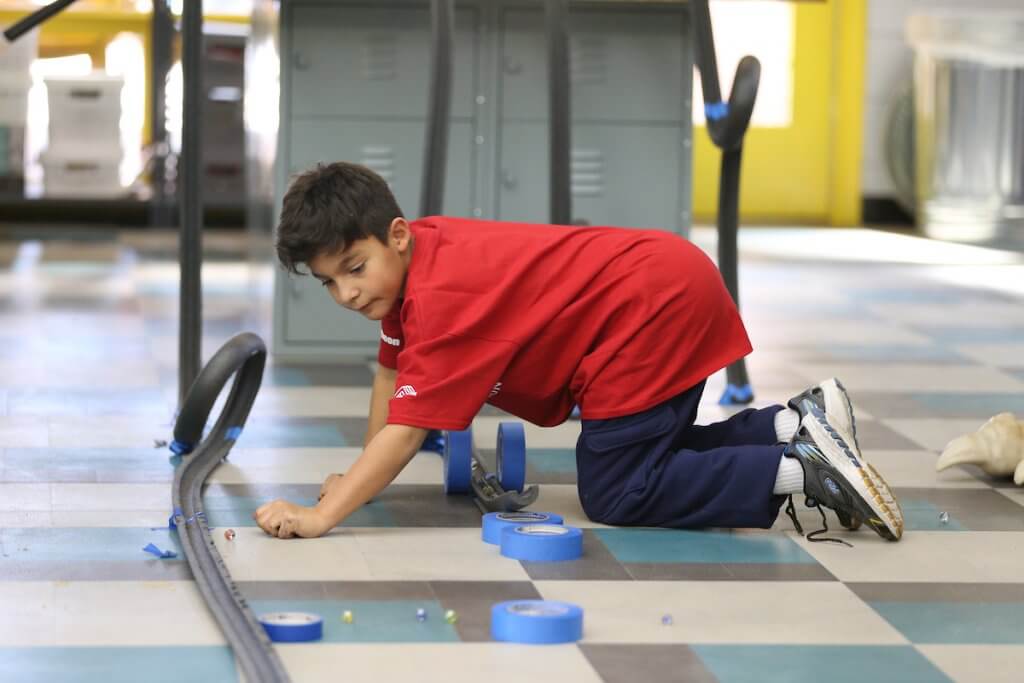
Engineers and scientists from Raytheon Technologies are already located on or by military bases, working closely alongside the military community so it was a natural move to extend the support to the children of a military family attending BGCA-affiliated Youth Centers. In 2015, Raytheon Technologies made a $5 million, multi-year commitment to BGCA to support the opening of STEM Centers of Innovation at BGCA-affiliated youth centers. Eighteen STEM Centers of Innovation are currently established across the U.S., with one abroad in Germany.
In addition to financial support, local Raytheon employees and engineers with wide training backgrounds, including mechanical, electrical and computer science engineering, provide group education sessions for youth on topics like 3D printing, robotics, and more. These group sessions allow for hands-on education in fields that students may not have access to in other ways. The goal of programming at the STEM Centers of Innovation is to share their different interests with students, hoping to foster an overall enjoyment in STEM education.
“It’s not just about providing resources, but also engagement with scientists who love their job and are excited about helping [the kids],” Laura McGill, Vice President of Engineering at Raytheon Technologies, said.
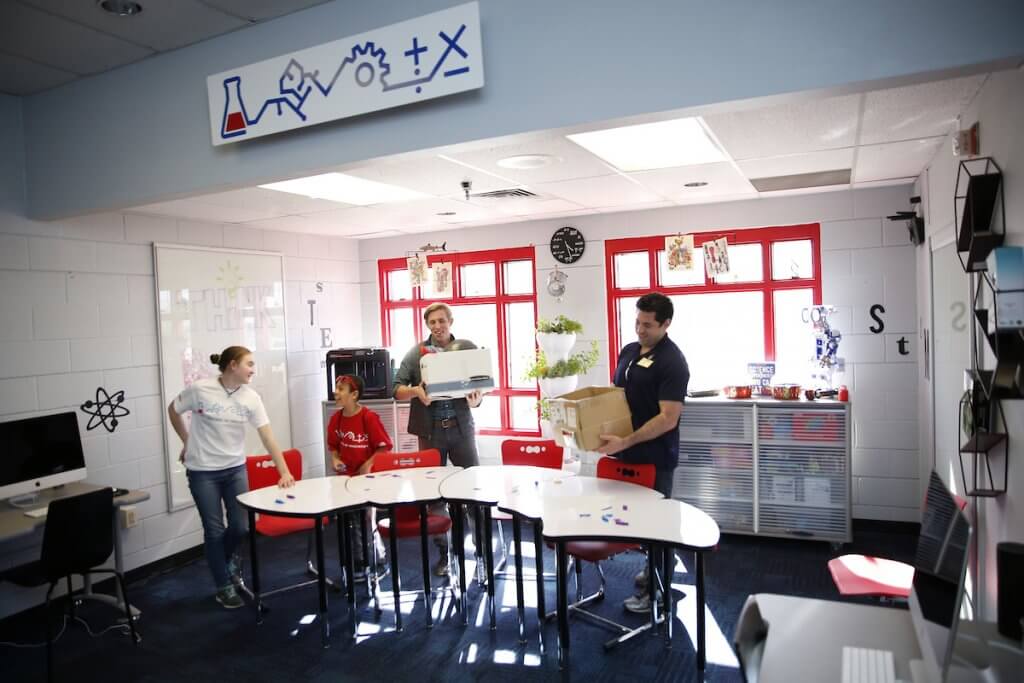
While some locations have temporarily closed due to COVID-19, that has not stopped them from impacting youth in the area. Some of the Boys & Girls Clubs and BGCA-affiliated youth centers have provided STEM kits, including “Robotics Challenges” or “How to Make Colors.”
In the ever-changing world of a military child within an unpredictable pandemic world, the ability to have consistency in programming in any form is stabilizing. Pending COVID-19 safety guidelines, four additional STEM Centers of Innovation are slated to open in 2021 in Colorado, Washington D.C., Michigan, and Oklahoma. The centers’ locations are chosen based on where the maximum impact can occur to the largest number of military families and children.
















